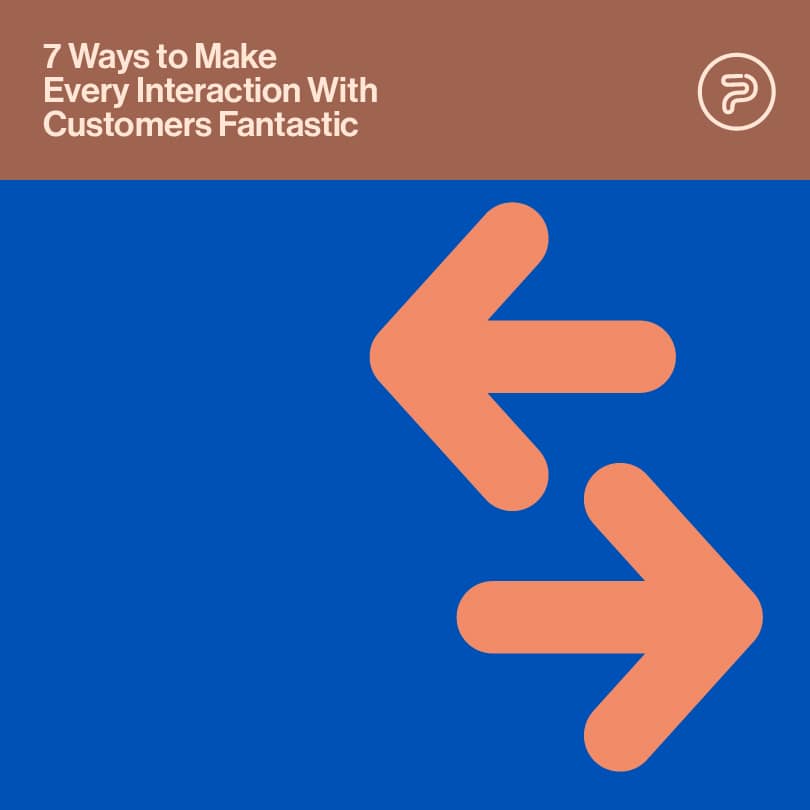In times when the competition is as fierce as it is today, true success means thriving in every segment of your business. A good quality product or service is of course crucial, but not enough to delight your customers. What is especially appreciated these days is the way brands communicate with their audiences.
You know how they say: a loyal customer is the most profitable kind of customer. So, how to maintain a long-term connection with your customers? Here are some tips that could be helpful.
Compassion and appreciation are always fashionable
Problems can occur at almost any step of your customer’s journey. They might be confused by the product description, or the delivery might be slow. Whatever it is, if we want to keep a good relationship with our customers, we have to show that we are there for them.
Keeping a great customer experience is a kind of art, and making people feel heard and understood is the golden rule of it. Regardless of the reason behind people’s concerns, your role is to listen and do your best to resolve the issue. Does a customer appear on your live chat to report a serious problem that came up because of your team’s mistake? Or do they call to ask a question that has already been clearly explained on your website? The third possibility could be that someone calls in because of delayed delivery. Finally, some customers might just want to say that they don’t like what they got.
However, you can’t just ignore the other ones because you don’t have the means of solving their issue. For example, it is obvious you can’t make carriers hurry up. What you can do is show empathy, let people know that you took notice of the issue and that you will do whatever you can to make sure they aren’t at loss.
Do more than necessary
Customer support is more than solving problems. It is an opportunity for your business to show how careful and mindful you are about people’s needs.
If you look at it like that, you realize that you don’t reach to people only when there’s a problem. You can do much more than that. For example, you can learn from past mistakes. Is there a pattern of complaints? Do you receive too many same emails from people asking for further clarifications on what you think you wrote on your website? Then, it might imply that what you wrote isn’t clear enough, and it might require changes.
Furthermore, even when an issue is resolved, it could be a good idea to ask for customer feedback on the process. What do they think, have you been helpful? For most people, a business asking for feedback is a clear sign of attentive and good customer service. Besides, it is a good way to learn about and from customer interaction. You could get some important insights and fresh ideas on what you can do to make even more positive customer experiences in the future.
Show your ability to take criticism
If we are building any kind of relationship – be it private or professional – from time to time, we have to admit that we are wrong.
There will be times when customer interaction will be unpleasant. People might call in to report serious mistakes on behalf of your team and logistics. And this is normal, business operations are (mostly) run by humans and they make mistakes.
You should be prepared for this, and know that you shouldn’t escape hard conversations, thinking that those customers are already lost. On the contrary, you don’t lose people that easily. If properly addressed, a great customer will understand the reason behind the problem and appreciate the willingness to solve it. In most cases, occurring problems are just another opportunity to build stronger customer relationships.
Be responsive, realistic, and transparent
It is very important to be understanding, but also unambiguous in customer interaction. People need to know the right information regarding their problems and the conditions under which those problems need to be solved. Additionally, don’t keep people waiting for this important information. Respond to customers regularly and be straightforward about what can and cannot be done. Be honest about deadlines, costs, and consequences that can’t be avoided.
Be at disposal
There is nothing more irritating than not finding a way to contact support when you have a burning issue. This is one of the greatest ways to ruin a positive customer experience and send a message that you don’t care.
Therefore, make sure there is not only one, but several ways for your customers to reach out to you. Except through emails and phone numbers, be responsive through the most popular social media platforms or 24/7 live chats.
People don’t like to speak with robots
As a society, we have moved from technophobia to another extreme. Techno-joy goes too far sometimes, and people often think that machines can do everything instead of us.
If you remember the last time you spoke to a chatbot getting generic replies, you know this isn’t true. Robots and algorithms can do a lot of things better than humans, however, communication is not one of them.
Therefore, leave data analytics and machine learning to AI. Chatbots are useful only to some extent. Personalization is everything in business these days, and you need humans to hear consumers and provide them with personalized replies.
Everybody likes surprises
Now, this one isn’t about problems or issues. Sometimes, one of the best ways to stay on good terms with your customers is to surprise them. This could be anything – from a discount to a gift or simply a thank-you letter. Whatever it is, it should benefit the customer in some way. People remember these small signs of appreciation and are more likely to stay engaged in the future.
Final thoughts
In marketing, it is already commonplace to say that customer retention is a much cheaper and sustainable way to increase sales. People are irritated with constant “ad bombings” everywhere they turn in their online activities. Instead, making an old customer even happier is a win-win, and a great way for small businesses to grow.





